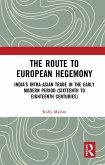The history of the conquest of Gaul, it has been said, would be far more obscure if twenty of Caesar's generals had written commentaries. In June 1940 the armies of France, Great Britain and Belgium succumbed to the onslaught of the German armies in less than six weeks. How this could have come about has hardly been illuminated by the accusations and counter-accusations of prominent French politicians and senior officers. The crossfire of charges is as blinding as a hailstorm. This book is a bold attempt to clarify responsibilities and to answer the question of how an army-not greatly inferior to the enemy's and only ten years before believed to be the strongest in Europe- met such an ignominious defeat. First it tells the story of the reconstitution of the army after 1919 and of the French defence preparations. It shows the chiefs' of staff lack of imagination: how dull were their analyses of the recent war, how blind they were to the outside world, how negligent of such matters as the increase in speeds and range of armaments, how incurious as to their enemies, and how subservient to the politicians who courted an electorate which loathed war but was not ready to pay for peace, while an out-of-date armament industry existed on high protective tariffs. In 1939 France had an army and an air force trained for defeat. The major part of the book, however, is a blow-by-blow narrative describing each stage, chiefly at the level of the lower formations. The events surrounding each operation create an astonishing picture of self-inflicted defeats, failure of communications, contradictory orders and an inability to control the mobs of civilian refugees who blocked roads and prevented reinforcement and supply.
Bitte wählen Sie Ihr Anliegen aus.
Rechnungen
Retourenschein anfordern
Bestellstatus
Storno









